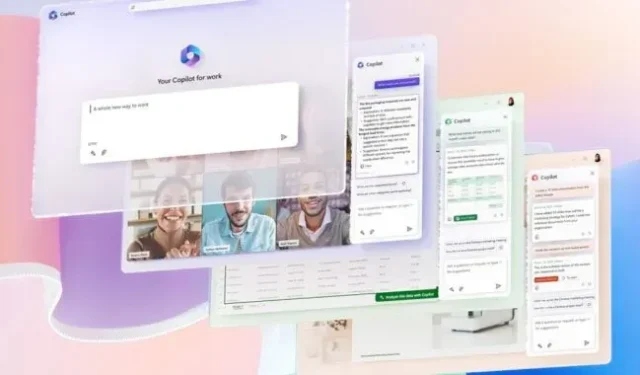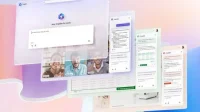Microsoft today revealed Microsoft 365 Copilot, a rumored effort to bring automated AI-based content generation features to all Microsoft 365 apps.
The capabilities shown by Microsoft make Copilot look like an improved version of Clippy, the often parodied and arguably favorite assistant from older versions of Microsoft Office. Copilot can automatically generate Outlook emails, Word documents, and PowerPoint presentations, can automate data analysis in Excel, and can extract important points from a Microsoft Teams meeting transcript, among other features.
Microsoft is currently testing Copilot “on 20 clients, including eight Fortune 500 enterprises.”The preview will roll out to other organizations “in the coming months,”but the company didn’t mention when individual Microsoft 365 subscribers will be able to use the features. The company will “reveal more about pricing and licensing soon,”suggesting the feature could be a paid add-on in addition to the cost of a Microsoft 365 subscription.
In a video showcasing Copilot’s features, Microsoft speakers showed how Copilot creates emails and PowerPoint slides based on requests. The core functionality is based on a large language model (LLM), such as the ChatGPT 4 based model used for Bing Chat, as well as Microsoft Graph that provides contextual information from elsewhere in the Microsoft cloud. Microsoft says LLM Copilot can be trained on business-specific data, using your data in a “secure, interoperable, and privacy-preserving way”to make Copilot results more relevant.
Copilot has been shown to retrieve relevant images from OneDrive, insert information from confirmation emails and calendar appointments from Outlook, and create PowerPoint decks based on information in a Word document. Copilot can also automate repetitive tasks, such as adding animations and transitions to a PowerPoint slideshow, or converting draft notes into a more polished document for everyone to share.
Knowing that AI content generators are prone to hallucinations and factual errors, Microsoft stressed that Copilot is most useful for “first drafts”and “starting points.”It may not correctly display every fact in an email or presentation, but users will be able to view and adjust text, images, and formatting to make sure everything is correct. Copilot can also be used in the editing process, making paragraphs you’ve written more concise or automatically replacing an image in a PowerPoint deck with a more appropriate image.
“Sometimes Copilot gets it right,”Jared Spataro, Microsoft vice president of Modern Works and Business Applications, said at the launch. “Other times it will be useful the wrong way, giving you an idea that isn’t perfect, but still gives you an edge.”
Microsoft also emphasized its commitment to “responsible building.”Despite allegedly firing an entire AI ethics team, Microsoft says it has a “multi-disciplinary team of researchers, engineers, and policy experts”looking for and mitigating “potential harm”by “refining training data, filtering to limit malicious content, requests.”and blocking the results of sensitive topics, as well as applying Microsoft technologies such as InterpretML and Fairlearn to help detect and correct data bias.” The system will also cite its sources and flag restrictions where appropriate.
This year, Microsoft is pushing AI-based features across all of its biggest products, most notably in Bing Chat preview, as well as Skype and Windows 11. It’s part of a multibillion-dollar partnership with OpenAI (the company behind ChatGPT), Whisper transcription technology, and an image generator. DALL-E.


